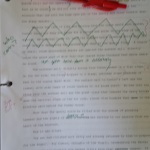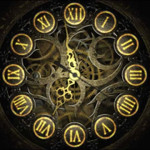 As authors, we make lots of promises to our readers. What genre is this book? Is it going to be a fast-paced adventure or a slow, character-focused drama? Is it funny, horrific, or simply entertaining? We set the tone in the opening of the book and the reader picks up on those hints and sets certain expectations for what to expect.
As authors, we make lots of promises to our readers. What genre is this book? Is it going to be a fast-paced adventure or a slow, character-focused drama? Is it funny, horrific, or simply entertaining? We set the tone in the opening of the book and the reader picks up on those hints and sets certain expectations for what to expect.
Betraying those expectations shatters a reader’s bond with a story and leaves an angry residue, no matter how good other aspects of the story might have been. This happens both in books and in movies. Sometimes false expectations are set in movie trailers or book jackets as a marketing ploy to suck in a wider audience, but any short-term gains will be lost in the long run as people realize the trick.
One movie that did this to me was Cowboys vs Aliens. The trailer made it look like an action comedy and I entered the theater with that expectation. Some parts of the story were well done, but I kept waiting for the punchline that never came. It wasn’t an action comedy. It was more like an action horror movie. Despite some quality acting and a halfway decent plotline, I left the theater feeling betrayed.
Another movie tried the same ploy. The trailer showed a hilarious scene that made it clear, this movie was a comedy. It wasn’t. It was a terrible flick with no redeeming qualities. Unlike some of those dumb comedies I remember fondly only because they made me laugh, this one was just dumb. Another betrayal.
Books are worse though, because we invest so much more time in them. A couple examples jump to mind. One novel, by a well-known author, started as a very interesting fantasy adventure with high stakes and a hero in deep trouble. I read on, drawn by the intrigue of how this hero could ever escape the predicament. I was looking forward to being amazed by the character’s wit and cleverness in escaping certain death.
What a huge disappointment when the climactic showdown resolve itself without any of that. The ‘magic’ saved them, the same magic that had been blocked in a thoroughly explained way that prevented it from coming to the rescue. The lame excuse offered by the author was that the hero just figured it out and boom – the magic solved all their issues.
I’m a fan of great magic systems. I read and write all types of fantasy, so magic is an integral part of many stories I love. But this was a cop-out, a deception, a betrayal of the contract the author made with me as a reader. Since then, I only ever started one other book by that author. In that one too, I picked up on a different deception. I put that book down unfinished, and that author lost me as a reader forever.
Is that harsh? Maybe. But it’s reality.
When we set expectations, we have to fulfill them. We can’t take the easy way out. If we set up our heroes with seemingly insurmountable obstacles, we’d better have an equally awesome solution. The hero has to figure it out, often in a split-second flash of understanding as they put all the pieces together we’ve worked into the script. We have as long as we need to figure it out and craft that moment so that readers exclaim in wonder at the hero’s creativity and then think, “Yeah, I can see how they figured that out, but that’s clever. I get it now.”
If we can do that, we’ve got a winner and readers will come back to us again and again.
Because they know they can trust us to entertain.



